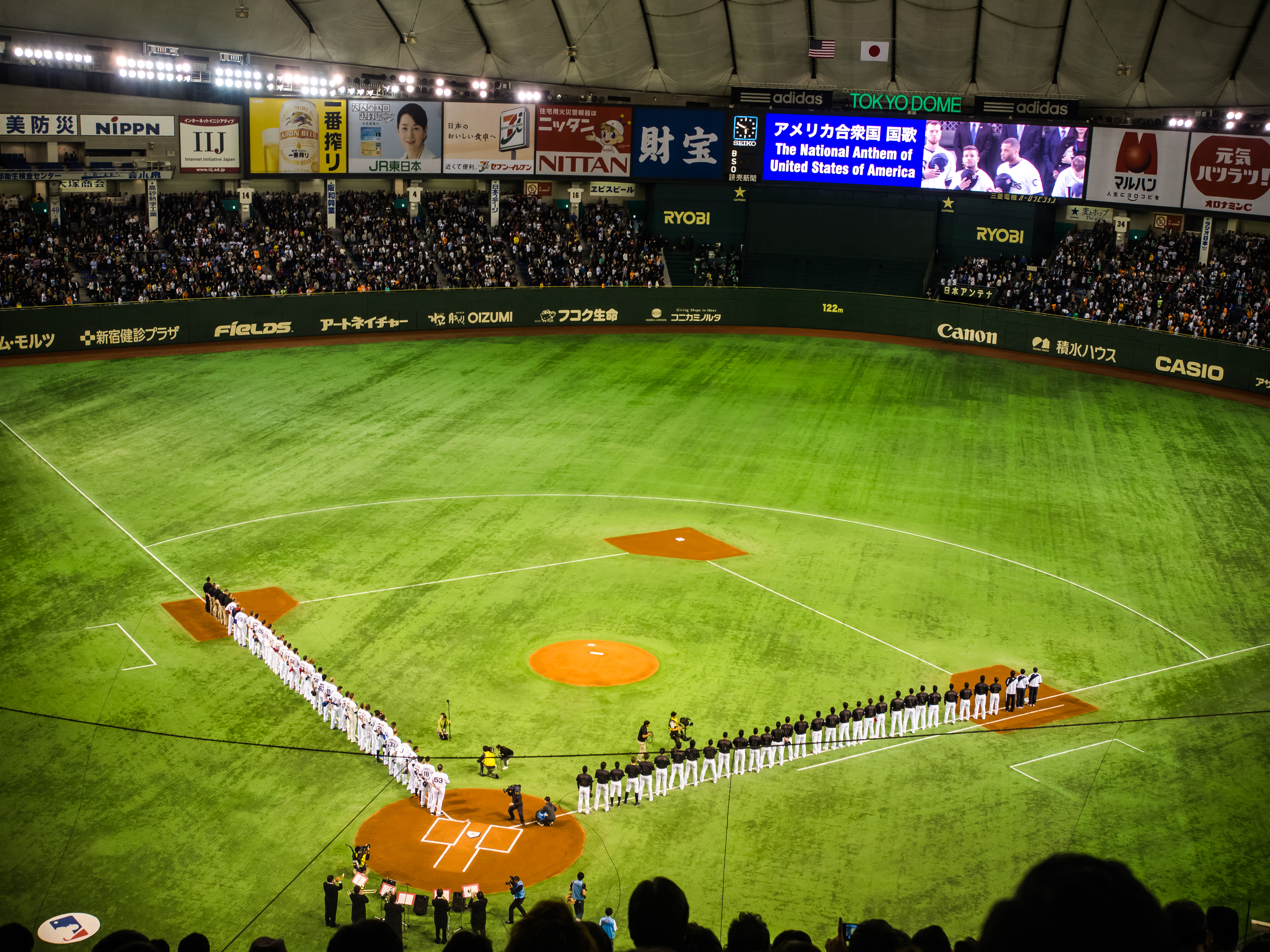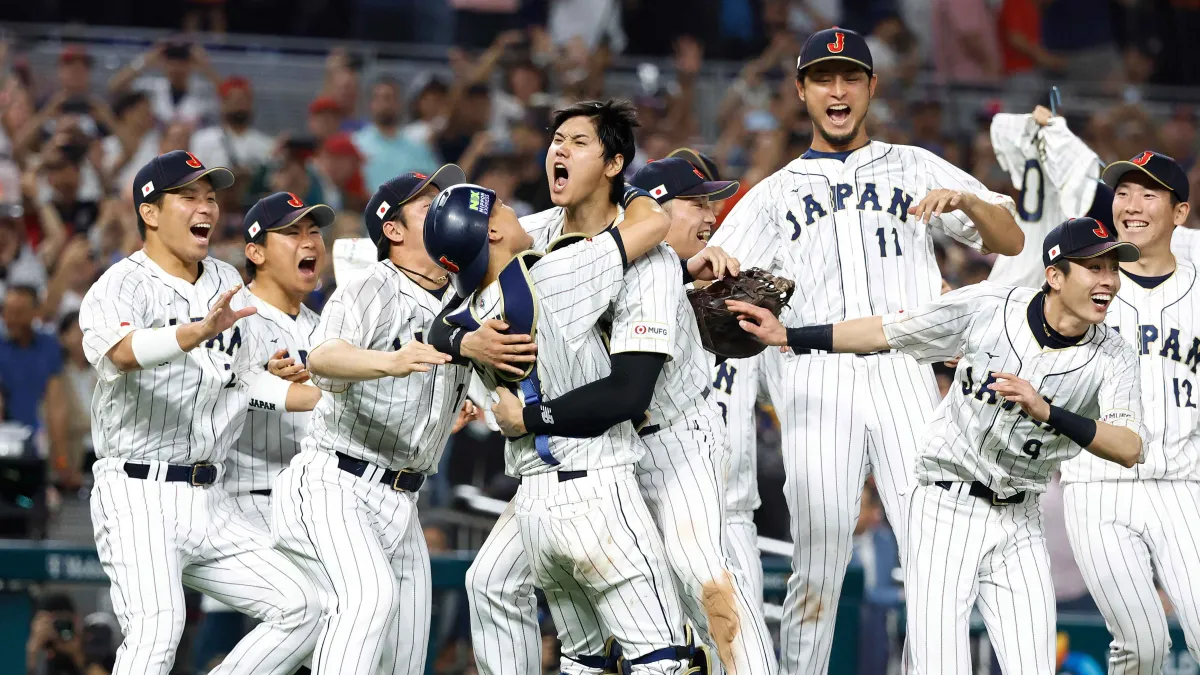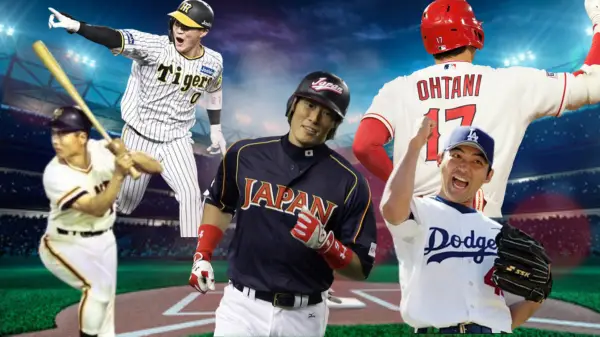Baseball enjoys immense popularity in Japan. It’s a sport deeply loved by many.
Baseball arrived in Japan in the 19th century and quickly found a dedicated following. The game blends teamwork and individual skill, appealing to Japanese cultural values. School tournaments and professional leagues contribute to its fame. From high school competitions to the Nippon Professional Baseball league, baseball is woven into the fabric of Japanese life.
The passion for the sport can be seen in packed stadiums and enthusiastic fans. This post will explore why baseball resonates so deeply in Japan, examining its history, cultural impact, and the unique way it is celebrated. Understanding these factors reveals why baseball is more than a sport in Japan—it’s a cherished tradition.
Historical Roots
Baseball is deeply rooted in Japanese culture. Its popularity spans over a century. Understanding its historical roots reveals why it holds a special place in Japan.
Introduction Of Baseball
In 1872, baseball was introduced to Japan by an American teacher. His name was Horace Wilson. He taught at Kaisei Gakko in Tokyo. He wanted to share American culture. He believed baseball would interest his students.
His prediction was right. The students loved the game. They embraced its competitive nature. Thus, baseball started gaining traction in Japan.
Early Adoption
The first Japanese baseball team was formed in 1878. It was called the Shimbashi Athletic Club. This team marked the beginning of organized baseball in Japan.
By the early 1900s, universities began forming their own teams. They held tournaments. These events drew large crowds. Baseball became a popular spectator sport.
In 1934, Japan formed its first professional baseball team. It was known as the Tokyo Giants. This team played a significant role in popularizing the sport further.
Post World War II, baseball’s popularity surged. American soldiers stationed in Japan played the game. Japanese citizens watched and participated. This period solidified baseball’s place in Japanese culture.
Baseball’s historical roots in Japan are rich and fascinating. Its introduction in the 19th century and early adoption by schools and universities laid a strong foundation. The formation of professional teams and post-war influences cemented its popularity. Today, baseball remains one of Japan’s most beloved sports.
Role Of Education
Baseball in Japan is more than just a sport. It is deeply rooted in the education system. Schools and universities play a crucial role in nurturing young talent. They offer structured programs that promote discipline and teamwork.
School Programs
Many schools in Japan have dedicated baseball teams. These teams are a part of the school curriculum. Students start playing baseball at an early age. This helps in developing their skills and passion for the sport.
The school programs are highly competitive. Teams often participate in local and regional tournaments. The most famous is the National High School Baseball Championship. Winning this tournament is a prestigious honor. It is a stepping stone for many young players.
Coaches play a significant role in these programs. They instill discipline and sportsmanship in the students. This helps in building a strong foundation for their future careers.
University Leagues
University baseball leagues are another essential part of the Japanese baseball culture. Many universities have top-tier baseball teams. These teams attract scouts from professional leagues.
University leagues provide a platform for players to showcase their talent. They compete in various tournaments throughout the year. The Tokyo Big6 Baseball League is one of the most prestigious leagues. It features teams from the top universities in Tokyo.
Playing in university leagues is a significant achievement. It often leads to opportunities in professional baseball. Many famous Japanese baseball players started their careers in university leagues. These leagues also promote a sense of camaraderie and teamwork.
In summary, the role of education in promoting baseball in Japan is undeniable. School programs and university leagues are vital in nurturing young talent. They help in developing skills, discipline, and a love for the game.
Media Influence
The media influence on baseball’s popularity in Japan cannot be understated. Media platforms play a huge role in bringing the sport to life for fans. From television broadcasts to celebrity players, media has a big impact on how baseball is perceived and enjoyed in Japan.
Television Broadcasts
Television broadcasts are a major factor in baseball’s popularity. Many Japanese networks dedicate air time to live baseball games. This allows fans to watch their favorite teams and players from the comfort of their homes. Prime time slots often feature exciting matches, drawing in large audiences.
Furthermore, detailed game analysis is provided by expert commentators. This helps viewers understand the strategies and skills involved. Highlight shows and replays also ensure that fans do not miss any critical moments, keeping the excitement alive even after the game has ended.
Celebrity Players
Celebrity players also boost baseball’s popularity. Many players achieve superstar status, becoming household names. These players often appear in commercials and TV shows, further increasing their visibility. Fans idolize them, following their careers closely.
In addition, media coverage of player lifestyles and personal stories creates a strong connection with the audience. Fans feel a sense of loyalty and pride, which enhances their engagement with the sport. Celebrity players inspire young athletes, who aspire to reach similar heights in their baseball careers.

Credit: en.wikipedia.org
Community Engagement
Baseball’s popularity in Japan is deeply rooted in community engagement. People of all ages participate in various activities, fostering a strong sense of togetherness. This engagement starts at the grassroots level and extends to fan clubs and local leagues. Let’s dive into how these elements contribute to the game’s widespread appeal.
Local Leagues
Local baseball leagues play a crucial role in Japan. These leagues bring communities together. Children join teams early and learn the value of teamwork. Parents and relatives often attend games, cheering for the young players. These gatherings become social events, strengthening community bonds. Many local leagues also host annual tournaments, adding excitement and fostering healthy competition.
Fan Clubs
Fan clubs are another key aspect of baseball’s popularity in Japan. These clubs offer fans a way to connect with each other. Members attend games together, share news, and discuss their favorite players. Fan clubs often organize events, such as meet-and-greets with players. This close interaction with the sport builds loyalty and passion among fans. Fan clubs also engage in charitable activities, further embedding themselves in the community.
Cultural Integration
Baseball’s popularity in Japan is deeply tied to cultural integration. The sport has seamlessly blended with Japanese traditions and values. This integration has made baseball more than just a game. It is a part of daily life and cultural identity.
Japanese Values
Baseball aligns with key Japanese values. Hard work and dedication are central to both. Players practice for hours to perfect their skills. This mirrors the Japanese work ethic. Respect for others is another important value. In baseball, players bow to each other before and after games. This shows mutual respect and sportsmanship.
Sportsmanship
Sportsmanship is highly valued in Japan. Baseball teaches teamwork, respect, and discipline. Players learn to support each other and work as a team. They also learn to accept wins and losses gracefully. This builds character and teaches life lessons.
Baseball games in Japan are unique. Fans cheer in organized ways, creating a lively atmosphere. This sense of community and support is special. It reflects the importance of harmony in Japanese culture. Everyone, from players to fans, plays a part in this collective experience.

Credit: www.nbcsportsboston.com
Economic Impact
Baseball is not just a sport in Japan; it’s a significant economic driver. The economic impact of baseball in Japan is vast and multifaceted. From merchandising to stadium revenues, baseball contributes greatly to the nation’s economy. Let’s delve deeper into these aspects.
Merchandising
Merchandising plays a crucial role in baseball’s economic impact in Japan. Fans eagerly purchase a wide range of baseball-related products, including jerseys, caps, and other memorabilia. Team logos and player names are emblazoned on countless items, generating substantial revenue.
Merchandise sales are not limited to physical stores. Online platforms also see significant traffic and purchases. This constant demand for baseball goods keeps the market thriving and supports local businesses and manufacturers.
Stadium Revenues
Stadium revenues are another major contributor to baseball’s economic impact. Every game attracts thousands of fans to stadiums across Japan. These fans spend money on tickets, food, and drinks, boosting local economies.
Stadiums also host special events and promotions, which further increase attendance and revenue. Corporate sponsorships and advertising within the stadiums add another layer of financial support, making baseball a lucrative industry.
Furthermore, the construction and maintenance of stadiums provide jobs and stimulate economic growth. This continuous cycle of investment and return makes baseball an essential part of Japan’s economic landscape.
International Success
Baseball’s popularity in Japan is not just about domestic leagues. The country’s international success plays a big role. Japanese teams have consistently performed well on the global stage, strengthening national pride and interest in the sport.
World Baseball Classic
The World Baseball Classic is a prestigious international tournament. Japan has won twice, in 2006 and 2009. These victories showcased their talent and skill. Fans across Japan celebrated these wins with immense joy. The tournament also helped to elevate the status of Japanese players globally.
Olympic Participation
Baseball’s inclusion in the Olympics has also boosted its popularity. Japan has consistently participated and performed well. In the 2020 Tokyo Olympics, Japan won the gold medal. This victory was a monumental moment. It further ingrained baseball into the national culture. The success at the Olympics inspired many young athletes.

Credit: m.youtube.com
Future Prospects
Baseball has a rich history in Japan. It continues to thrive and evolve. The future looks bright with several key areas of focus.
Youth Development
Japan has a strong focus on youth development. Schools and local clubs play a big role. Kids start playing baseball at a young age. These programs teach skills and teamwork. They also instill a love for the game.
There are many high school tournaments. These events are very popular. They attract large audiences. Young players get a chance to shine. They can even catch the eye of professional scouts.
The support for young athletes is impressive. Coaches and mentors provide guidance. This helps develop future stars. The system ensures a steady flow of talent. This keeps the sport vibrant and competitive.
Global Influence
Japanese baseball has a global reach. Players often join Major League Baseball (MLB) in the United States. This increases Japan’s influence worldwide. Famous players like Ichiro Suzuki and Shohei Ohtani have made a mark. They inspire young athletes in Japan and abroad.
Japanese teams also participate in international tournaments. The World Baseball Classic is one example. These events showcase their skills on a global stage. They also foster international friendships and rivalries.
Another factor is the rise of media and technology. Fans can follow games online. They can watch their favorite players and teams. This global exposure helps grow the sport. It also attracts new fans from different countries.
| Key Area | Impact |
|---|---|
| Youth Development | Ensures a steady flow of talent. |
| Global Influence | Increases international recognition and fanbase. |
In summary, the future of baseball in Japan looks promising. The focus on youth development and global influence will keep the sport thriving. Japan’s rich baseball culture continues to inspire and captivate fans worldwide.
Frequently Asked Questions
What Makes Baseball Popular In Japan?
Baseball in Japan is popular due to its rich history, strong league, and talented players. Japanese culture values teamwork and discipline, which aligns well with baseball’s principles.
When Did Baseball Become Popular In Japan?
Baseball became popular in Japan in the early 20th century. The sport was introduced by American educators and quickly gained a following.
How Does Japanese Baseball Differ From American Baseball?
Japanese baseball emphasizes strategy and teamwork more than power. The game features smaller fields, and pitchers often have different techniques.
Who Are Famous Japanese Baseball Players?
Famous Japanese baseball players include Ichiro Suzuki, Shohei Ohtani, and Hideo Nomo. They have all achieved success in both Japan and Major League Baseball (MLB).
Conclusion
Baseball’s popularity in Japan has deep roots. The sport connects generations. It teaches discipline and teamwork. Fans enjoy the thrill of the game. Local leagues inspire young players. International success boosts national pride. Baseball is more than a sport; it’s a cultural phenomenon.
This long-standing love for baseball will likely continue. Everyone enjoys its excitement and tradition.





